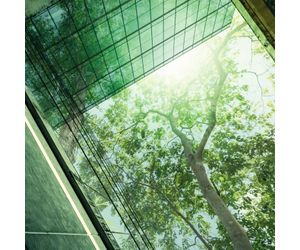


Synzero - Lifecycle Cost Analysis Services
Let our Lifecycle Cost Analysis identify the most cost-effective solutions for your business. Ensure your long-term profitability with a true evaluation of your business. The Levelised Cost of Energy (LCOE) is a crucial component of a Lifecycle Cost Analysis. It is used to calculate the average cost of generating one unit (usually a kilowatt-hour, kWh) of electricity over the lifetime of a power plant. It includes all the costs of building, operating and maintaining your plant. LCOE helps compare the cost-effectiveness of different energy to evaluate their economic viability. Your Levelised Cost of Energy (LCOE) can be used to determine whether a project will be a worthwhile venture. The LCOE is the first step in deciding whether the project should viably go ahead. To ensure you have all the support you require in assessing the cost of energy in your business, get in touch with our highly experienced team.
Not only will your Lifecycle Cost Analysis identify the most cost-effective solutions for your business, but it will also help reduce carbon emissions. It will aid the efficient use of resources by identifying materials and processes with lower environmental footprints. This optimisation reduces waste and emissions, contributing to overall sustainability.
The process supports long-term planning for the reduction of carbon emissions. It forecasts future costs and benefits, allowing your business to invest in technologies and practices that offer economic and environmental advantages.
By combining financial and environmental considerations, a Lifestyle Cost Analysis will enable your business to make informed decisions that simultaneously create cost savings and carbon reduction.
Make a positive impact on your business and the planet.

Lifecycle Cost Analysis provides numerous benefits for businesses and organisations, including:
- Prevent unexpected costs by planning your project’s finances from start to finish
- Allocate resources effectively within the budget
- Lower risk exposure through analysis and simulation
- Promote sustainability by considering long-term energy use
- Accurately measure ROI throughout the life cycle of your project

Many industries can benefit from a Lifecycle Cost Analysis (LCA) such as energy, construction, manufacturing, healthcare and technological industries. Here is how it can help each industry:
- In energy sectors, LCA identifies the most cost effective solution for your business. It will help determine the most sustainable power sources by calculating the Levelised Cost of Energy (LCOE) and comparing long term expenses.
- Construction companies commonly use LCA to optimise costs while supporting environmental goals. They will do this by evaluating energy systems, building materials and maintenance strategies.
- LCA benefits manufacturers by identifying efficient processes and materials that reduce waste and lower expenses. This process reduces waste and emissions resulting in increased sustainability.
- Healthcare industries benefit from LCA as it provides insights into long term costs of facilities, medical equipment and infrastructure. This helps healthcare providers consider other factors apart from the up front costs such as ongoing expenses, energy consumption and the eventual disposal of these assets.
- Technology companies use LCA to evaluate hardware and data centres in an aim to increase energy efficiency.
- Absolutely, a LCA will thoroughly analyse and provide a financial view of a product or asset over its entire life span rather than just the initial cost. This means by estimating all expenses forecasted like maintenance, operating costs and disposal, any surprise expenses are eliminated.
- To go the extra mile, an LCA considers factors such as inflation, potential changes in operational needs and resource availability. This approach ensures that unexpected costs are minimised to an even further expense.
- No, LCA’s are suitable and valuable for projects of all sizes as they provide an in-depth analysis of costs and benefits. This means even small projects can find ways to improve cost effectiveness and sustainability.
- Small projects such as installing solar panels to your home can benefit from this process. What an LCA will do is evaluate elements such as your long term savings on electricity, the maintenance costs and the life span of the solar panels. From this analysis, you can decide whether investing in solar panels is worthwhile.
- An example of larger projects that can benefit from LCA is an airport expansion or a wind turbine farm. In these kinds of projects, an LCA will analyse factors such as material costs, energy production, ongoing expenses and the initial investment. This will help you make an informed decision on whether your project will suffice your aims and goals.
